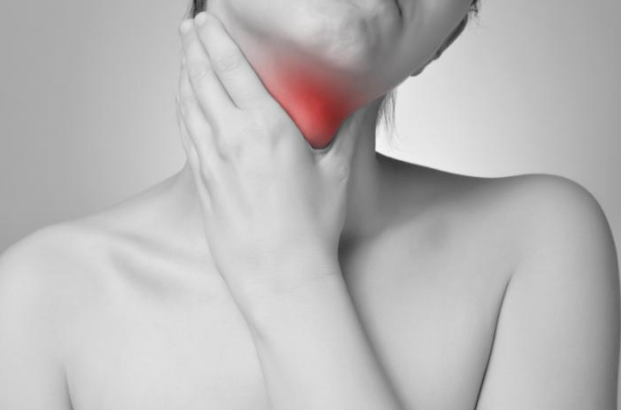Naturopathic Thyroid Treatment
Your thyroid is the center of your energy and metabolism. When it’s not able to do it’s job, you can feel anything from crippling fatigue to ongoing illness. Naturopathic Thyroid Treatment can help you get your life back.
 Generally, thyroid conditions fall into two categories: either your thyroid is under functioning (hypothyroidism) or over functioning (hyperthyroidism).
Generally, thyroid conditions fall into two categories: either your thyroid is under functioning (hypothyroidism) or over functioning (hyperthyroidism).
Diagnosis can usually be done with blood work and a thyroid ultrasound. Depending on the individual trial interventions may be required to see if improvements are made.
Treating Thyroid Conditions
Depending on the situation, Dr. Smith may use the following treatment:
- Botanical medicine
- Acupuncture
- Desiccated thyroid to address hypothyroidism
- Naturopathic medicine
Understanding Thyroid Conditions
Hypothyroidism
Some common forms of Hypothyroidism:
- Hashimoto’s thyroiditis
- Primary Hypothyroidism
- Surgical hypothyroidism
- Post pregnancy hypothyroidism
- Secondary hypothyroidism related to pituitary failure
Hypothyroidism, by definition, is a clinical state. It is a state of low levels of thyroid hormone in the body.
The low levels of thyroid hormone can occur as a result of a variety of different reasons, such as iodine deficiency, surgical removal of the thyroid, excess use of thyroid suppressing medications, pituitary suppression or damage to the thyroid (physical or disease induced).
Most cases of hypothyroidism in the United States, Canada, Europe and in most countries that add iodine to their salt supply are caused by Hashimoto’s, an autoimmune condition. Depending on the source, estimates are that between 90-97% of those with hypothyroidism in Canada and the United States actually have Hashimoto’s.
What exactly is Hypothyroidism?
Hypothyroidism is a condition that occurs when the thyroid gland does not produce enough thyroid hormones to meet the needs of the body. The thyroid creates two thyroid hormones, triiodothyronine (T3) and thyroxine (T4) that regulate metabolism.
They also affect the following:
- Brain development, cognition, memory (otherwise known as brain fog)
- Breathing
- Mood
- Hairloss
- Heart and nervous system functions
- Body temperature
- Muscle strength
- Skin dryness
- Menstrual cycles and fertility
- Weight
- Cholesterol levels
The production of thyroid hormones is regulated by thyroid-stimulating hormone (TSH), which is made by the pituitary gland which takes direction from the hypothalamus, in the brain. TSH ensures that enough thyroid hormones are made to meet the body’s needs.
Symptoms of Hypothyroidism
- Fatigue
- Poor concentration or feeling mentally “foggy”
- Dry skin
- Weight gain
- hairloss
- Constipation
- Feeling cold
- Fluid retention
- Muscle and joint aches
- Depression
- Prolonged or excessive menstrual bleeding in women
- Infertility in women
Causes of Hypothyroidism
There are two fairly common causes of hypothyroidism. The first is a result of previous (or currently ongoing) inflammation of the thyroid gland, which leaves a large percentage of the cells of the thyroid damaged (or dead) and incapable of producing sufficient hormone. The most common cause of thyroid gland failure is called Hashimoto’s thyroiditis or autoimmune thyroiditis, a form of thyroid inflammation caused by the patient’s own immune system.
The second major cause is the broad category of “medical treatments.” The treatment of many thyroid conditions warrants surgical removal of a portion or all of the thyroid gland. If the total mass of thyroid producing cells left within the body are not enough to meet the needs of the body, the patient will develop hypothyroidism. Sometimes a surgery will be to remove a worrisome mass or nodule, leaving half of the thyroid undisturbed. Sometimes, the remaining lobe will produce enough hormone to meet the demands of the body. For other patients, however, it may become apparent years later that the remaining part of the gland can’t keep up with demand.
Similarly, goiters and some other thyroid conditions can be treated with radioactive iodine therapy. The aim of the radioactive iodine therapy (for benign conditions) is to kill a portion of the thyroid to prevent goiters from growing larger or producing too much hormone (hyperthyroidism).
Occasionally, the result of radioactive iodine treatment will be that too many cells are damaged so the patient often becomes hypothyroid within a year or two. However, this is usually greatly preferred over the original problem and is simply a risk with this intervention.
There are several other rare causes of hypothyroidism, one of them being a completely “normal” thyroid gland that is not making enough hormone because of a problem in the pituitary gland. If the pituitary does not produce enough thyroid stimulating hormone (TSH) then the thyroid simply does not have the “signal” to make hormone. So it doesn’t.
How do you diagnose Hypothyroidism?
Since hypothyroidism is caused by too little thyroid hormone secreted by the thyroid, the diagnosis of hypothyroidism is based almost exclusively upon measuring the amount of thyroid hormone in the blood. There are normal ranges for all thyroid hormones which have been calculated by computers which measured these hormones in tens of thousands of people. BUT. The reality is that there are plenty of people whom have “normal” lab results but have a raft of symptoms. Depending on the case, Dr. Smith will sometime do a trial intervention to see if the patient sees improvement. These tests are very accurate and reliable and are routine blood work, however, as I mentioned previously there are plenty of people who are well within the reference range whom are functionally hypothyroid,and get better with treatment.
How do you Treat Hypothyroidism?
Dr. Smith uses botanical medicines and or dessicated thyroid to address hypothroidism in her patients. Often with Hashimoto’s disease, the focus is more on stabilizing the immune system (vs simply giving thyroid medicine), and naturopathic medicine has a lot to offer in this department.​
What exactly is Hyperthyroidism?
Hyperthyroidism, also known as overactive thyroid, is a medical condition caused by an abnormally high level of thyroid hormones in the bloodstream. In other words, the thyroid gland produces an excessive amount of thyroid hormones.
Symptoms of Hyperthyroidism
- Swelling in the neck caused by an enlarged thyroid gland (goiter)
- Decreased concentration
- Diarrhea
- Difficulty breathing
- Difficulty sleeping
- Excessive sweating
- Extreme tiredness
- Hyperactivity
- Oversensitivity to heat
- Increased appetite
- Increased bowel movements
- More frequent urination
- Infertility
- Moodiness, irritability
- Itchy skin with raised itchy swellings (urticaria)
- Nails become loose
- Loss of interest in sex
- Menstrual problems in women, especially lighter periods or absence of periods
- Muscle weakness
- Alopecia – usually, hair is lost in patches
- Accelerated heartbeat, sometimes with palpitations
- Redness on the palms of hands
- Shakiness and muscle weakness
- Sudden weight loss or gain
- Trembling hands
- Warm, damp skin
What causes Hyperthyroidism?
Graves’ disease – this is the most common cause and is an autoimmune condition in which the body’s immune system mistakenly targets the thyroid gland and causes it to produce too much thyroid hormone. It is unclear what triggers this condition however, there is a genetic basis for Graves’ disease, meaning that it often runs in families. It is most common in women aged 20-40 and has a higher incidence amongst smokers.
Nodular thyroid disease – lumps can develop in the thyroid gland. They are known as nodules. It is unclear why they develop and they are usually benign. The thyroid is usually enlarged, but there is no pain. Nodules may be felt with the fingertips and are often found on physical examination. The nodules can contain abnormal thyroid tissue, affecting the regular function of the thyroid, causing overactive thyroid. Nodules that contain abnormal thyroid tissue are described as toxic.
Excessive iodine intake – the thyroid gland removes iodine from the blood which comes from foods such as seafood, bread, and salt. It then uses the iodine to produce thyroid hormones. The two most important thyroid hormones are thyroxine (T4) and triiodothyronine (T3). Taking additional iodine in supplements can cause the thyroid gland to produce too much of the hormones. Intake of thyroid hormones – lack of regular patient blood work and follow-up can result in patients not adjusting their thyroid medications as their needs change.
Medications – certain medications used in the treatment of heart problems contain a large amount of iodine and thus may be associated with changes in thyroid function. An example is amiodarone, which is sometimes prescribed for patients with atrial fibrillation.Other medications, like lithium for bipolar disorder, have been known to cause hyper- or hypothyroidism.
Thyroiditis – this is an inflammation of the thyroid; it is often the result of a viral infection. The signs and symptoms may include fever, sore throat, painful swallowing, generalized aches, and pains in the neck.
Follicular thyroid cancer – in rare cases, overactive thyroid can be caused by thyroid cancer. The malignant cells may themselves start producing thyroxine or triiodothyronine.
How is it diagnosed?
Usually with blood work and a thyroid ultrasound.
How Does Dr. Smith treat Hyperthyroidism?
Dr. Smith uses botanical medicine primarily to assist in these cases, sometimes along with acupuncture. It depends greatly on what the cause is.


